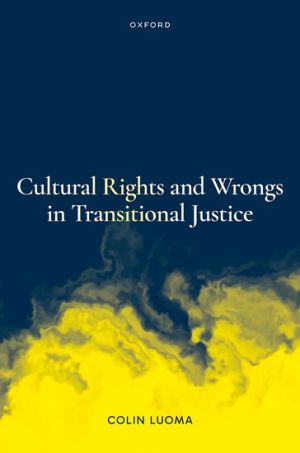
Cultural Rights and Wrongs in Transitional Justice provides the first in-depth analysis of culture and cultural rights in the field of transitional justice. It takes stock of the role of cultural rights with respect to the field's historical marginalization of culture. Cultural rights remain a significant blind spot in the relevant research, one that has yet to be consistently incorporated into transitional justice practice or considered in academic theory.
This book traces the marginalization of cultural rights to how the transitional justice field originated and evolved. Certain biases, assumptions, and preoccupations were cemented in a dominant model of justice in times of transition, especially as it relates to the concepts of transition, justice, and violence. Conventional notions have greatly restricted transitional justice from respecting cultural rights and addressing their violations. Cultural Rights and Wrongs in Transitional Justice challenges the dogmatic approaches inherent in the dominant model and retheorizes these core concepts in ways that enable and encourage a more robust engagement with cultural rights, without sacrificing the raison d'être of the transitional justice project. It argues that transitional justice, unmoored from its initial conceptual boundaries, has the flexibility to respect and address large-scale cultural rights violations and accommodate local and Indigenous cultures. This flexibility allows the field to account for underlying cultural violence and empower cultural interventions in the wake of mass harm. This has the potential to strengthen the normative value of cultural rights, address root causes of violent conflict, respond to survivor priorities, and shape more meaningful long-term reforms.